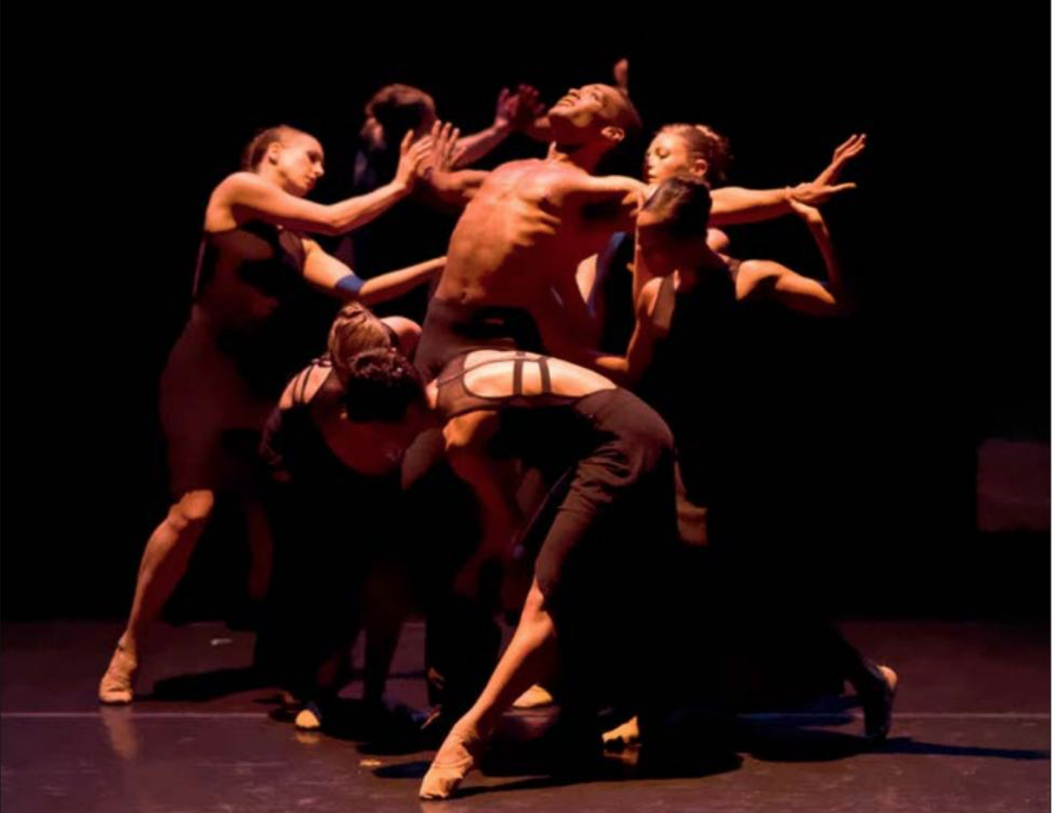While developing the choreography for Connections, its original production that premieres May 7, Charlottesville Ballet had some big questions.
For answers, the company, coming off a two-year pandemic hiatus, turned to its own dance academy, outreach programs, and the broader Charlottesville community, and asked: What does freedom mean to you? and When did you feel a true sense of belonging?
Ballet, says Emily Hartka, Charlottesville Ballet’s co-director, is “a mirror of what happens in our society.” And she wanted suggestions for how to “tell the stories of our time.”
Connections, created in collaboration with the Charlottesville Symphony, Lighthouse Studios, and the UVA Democracy Initiative, explores the power of dance to connect and unite. It features works by four choreographers of color from Virginia and Washington, D.C., and includes traditional pieces, such as Brandye Lee’s “Req,” and Maggie Small’s “A La Folie,” as well as Jason Ambrose’s contemporary work, “For Now I Am…,” which includes a stunning array of rotating mirrors.
The centerpiece of the performance is Keith Lee’s “The Orion Constellations.” Lee, the company’s artist laureate and director of diversity and inclusion, used the community’s responses to inspire five choreographed movements, and asked the respondents to record themselves performing those movements. With the help of Lighthouse Studios, the recordings became projections that will be shown as a backdrop to the dancers during “The Orion Constellations.” Lee says this virtual community cast is a powerful example of “Charlottesville Ballet’s work to bring accessibility and inclusion to the art of ballet.”
The first African American soloist at the American Ballet Theater in 1970, Lee has choreographed for companies across the U.S., and in Connections, his work ranges from Le Corsaire, a traditional ballet from 1856, to “Just Make Believe,” a piece that reflects on 2017’s Unite the Right Rally.
In tandem with the premiere, audience members are invited to attend Democracy & Dance, a discussion panel that features Lee and Brandye Lee (no relation), as well as Dr. Marie Chee, who instructs CB’s 50-and-older dance program, and Christina Johnson, a guest coach who’s featured in Misty Copeland’s book Black Ballerinas. The conversation will center around using performing arts to unite people, asking how dance can help create an inclusive public culture.
Charlottesville Ballet began as a professional company, and Hartka and co-director Sarah Clayborne were only 19 and 20 years old when they founded it in 2007. The pair, who met while dancing for Richmond Ballet, grew up in the professional ballet world, and had concerns about it. Hartka experienced group weigh-ins and demands to conform to a certain body type, which she says contributed to years of struggling with eating disorders. “We couldn’t articulate it at the time, but we knew there had to be a better way,” she says. “We had a vision of a company that would respect its artists.”
At CB, their vision celebrates ballet options for every body type and removing barriers to dance classes. The organization also prioritizes health and wellness in training. “We bring science and education to the curriculum, such as physiology on how the body functions and moves,” she says. “That’s not always standard in the classical ballet world [that believes] you either have the jump, or the body, or the turnout, or you don’t.”
In the early years, Hartka and Clayborne would joke that their professional company was a rehab for dancers unaccustomed to wellness-centered training. Then they realized that joke reflected a dire need. “Wait—maybe [ballet education] shouldn’t traumatize the children from age 3 on,” Hartka remembers discussing. “Maybe we should start at a young age with healthy training, so they don’t have to come to us for rehab.” In 2011, they began the Charlottesville Ballet Academy, and what started as a program with 60 students now has 600, with classes in ballet, tap, jazz, and hip hop.
The third tier of Charlottesville Ballet is the community outreach program, CB Moves. The classes are free and for those underrepresented in the ballet world, including seniors, Parkinson’s patients, and students with disabilities. CB Moves also partners with public elementary schools for classes and opportunities to win lifetime scholarships to the Charlottesville Ballet Academy.
“We’re trying to follow [our core values of accessibility and inclusion] in an authentic way and live it every day,” says Hartka. Connections, with its focus on community and diverse voices in dance, is just another part of that…“a celebration, but also a moment of reflection on the ties between us all.”
